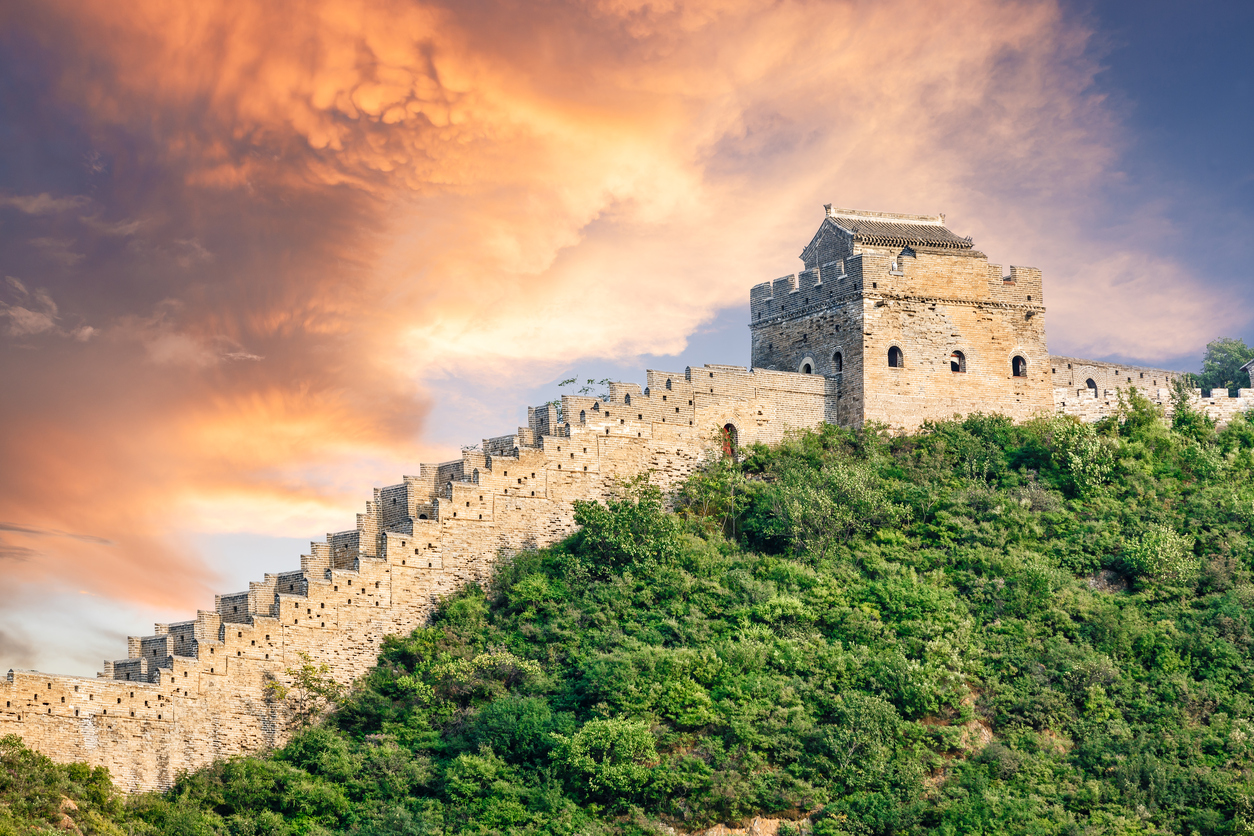Cambridge University Press (CUP) recently removed some 300 articles from a Chinese website after being extorted into an untenable situation by the Chinese government. In short succession, CUP was threatened with a boycott by some proactive academics. The boycott and general condemnation of what some interpreted as “capitulation” ultimately led to Cambridge University overruling the publisher’s decision and reinstating the articles in defiance of the Chinese demands.
At issue were articles in a CUP journal, China Quarterly. These articles cover subjects like the Tiananmen Square massacre, Tibet, Xinjiang, Hong Kong, and the Cultural Revolution. CUP risked having all its content blocked inside China if it did not comply with the demands to block these articles from reaching China.
While the boycott generated results, boycotting CUP is what some might call “small beer.” Condemning the actions of the Chinese government is the more important reaction, and one we need to think about more generally. Blaming the publisher is like blaming the victim in cases like this.

CUP’s initial reaction wasn’t all it could have been, and somewhat abnormal for publishers in general, who tend to keep certain titles out of markets entirely when faced with known political hot buttons. But the fact that CUP didn’t self-suppress a journal touching on hot topics possibly earns them some credit. Their tactical retreat and the resulting backlash did get the attention of the media, the academic community, and CUP’s parent organization, Cambridge University, which put its weight behind a repudiation of China’s demands and a reinstatement of the articles caught up in the attempted censorship.
Cambridge University Press responded throughout the controversy with clear denunciations of the Chinese government’s actions. In its statement about the censorship threat, CUP said:
We are aware that other publishers have had entire collections of content blocked in China until they have enabled the import agencies to block access to individual articles. We do not, and will not, proactively censor our content and will only consider blocking individual items (when requested to do so) when the wider availability of content is at risk.
However we are troubled by the recent increase in requests of this nature, and have already planned meetings to discuss our position with the relevant agencies at the Beijing Book Fair next week.
We will not change the nature of our publishing to make content acceptable in China, and we remain committed to ensuring that access to a wide variety of publishing is possible for academics, researchers, students and teachers in this market.
China signed up to the International Publishers Association last year, and one of the body’s guiding principles is that of freedom to publish. The issue of censorship in China and other regions is not a short-term issue and therefore requires a longer-term approach. There are many things we can’t control but we will continue to take every opportunity to influence this agenda.
The Press even published a list of the blocked articles to draw attention to them.
CUP’s agreement to withdraw the ~300 articles can be fairly viewed as a strategy to draw attention and attract allies to a battle no publisher can hope to win alone. The timing was fortuitous, as the Beijing Book Fair, where CUP hopes to take up the issues directly with Chinese authorities, is being held next week. The Beijing Book Fair itself is now in a tricky position as a commercial venue, with its director quoted in an interview saying:
Every year, BIBF attracts more and more international exhibitors, thanks to better overseas cooperation and the continued globalization of the Chinese publishing industry. It’s increasingly a two-way street as the number of translated works available grows — with Chinese titles now being sold internationally in greater quantity as well as content being imported from overseas.
It remains to be seen how trade can be “a two-way street” when one way is blocked based on what the country’s government views as objectionable.
The IPA, which China recently joined as part of its effort to gain more legitimacy as a publishing economy, has its Freedom to Publish initiative, which it describes as follows:
One of IPA’s primary objectives is to fight censorship and to safeguard the fundamental freedom of expression, freedom to publish and freedom to access information. IPA defends the rights of authors and publishers to create and distribute their works of the mind in complete freedom.
The freedom to publish is a subset of the freedom of expression. The right to freedom of opinion and expression is at the basis of democracy and is of fundamental importance to the safeguarding of human dignity. The diversity of sources of knowledge and information is an essential prerequisite for cultural diversity, creativity, prosperity, tolerance, and the development of societies worldwide.
I contacted the IPA’s Director of Communications and Freedom to Publish, who quickly replied, telling me that their President, Michiel Kolman, will be delivering* a speech on Wednesday to a room of Chinese officials and publishing representatives saying, in part:
It is the IPA’s duty to challenge censorship wherever it occurs, including in China. We are deeply concerned by last week’s blocking of online academic publications on Chinese affairs by Cambridge University Press, which was under pressure from Beijing to do so. In a speech this week to be delivered at Beijing International Book Fair, the IPA will call on the Chinese authorities to immediately overturn this act of academic censorship, which is a retrograde assault on the freedom to publish. The IPA will continue to monitor this case as it evolves in consultation with the Publishers Association of China.
Beyond the specifics of this situation, this event is emblematic of deeper problems, which have been plain to see for years, if not decades. In 2015, a group of a dozen US publishers signed an agreement to work against censorship in the Chinese publishing market, the world’s second-largest. Censorship in China is not a new issue, but the Chinese government seems to have taken a harder line in recent years. In February 2016, China’s leader, Xi Jinping, announced that all media content on any platform must come under the Communist Party’s guidance. Facebook, YouTube, and Google have been dealing with this for years now, but academic journals are a new target.
We live in a time of attacks on good information. In this case, it’s a familiar blunt instrument known as “censorship,” but China is not alone in censoring information, and certainly not alone in interfering with it.
We live in a time of renewed attacks on good information. In this case, it’s a familiar blunt instrument known as “censorship,” but China is not alone in censoring information, and certainly not alone in interfering with it. Just while assembling this post, I came across stories of the DC transit authority censoring advertising on its trains, ironically disallowing an ad from the ACLU that quoted the First Amendment because it was viewed as violating the transit authority’s vague rules against “advocacy groups.” Meanwhile, the White House is blocking access to visitor logs in a way that is most probably illegal. More novel and insidious approaches are also underway, including purges of scientific information, as well as the de facto censorship of good information by crowding it out with bad information, and the rapid-fire promulgation of obfuscatory propaganda by governments and their minions. Corporate interference in scientific research is another way our path to the truth can be obstructed. Scholars are being harassed as they cross borders, as well, which has a chilling effect on the transmission and sharing of ideas. The state of Florida has potentially given each citizen the power to censor materials in schools via its new law that allows challenges to materials in public education.
There’s an interesting twist to this story, as well — according to the New York Times, part of the reason academic and scholarly content was not subjected to censorship in the past was due to its relatively high prices. Whether you think US$388 per year for a site license to China Quarterly is expensive, the fact remains that for China’s emerging economy, these prices were viewed by the Chinese government as sufficiently high to eliminate concerns about the articles reaching a popular audience. Perhaps the growth of the Chinese middle class has caused a reassessment of scientific and scholarly materials and their potential to reach a growing and more affluent Chinese audience. Here’s the twist — affordability may have led to censorship. It appears that no matter the pricing strategy of a publisher — whether OA or subscription — governments and others are yet again focused on content and its political or social potentials.
CUP was caught up briefly in this new embrace of totalitarian information policies. Most publishers deal with censorship quietly, and aren’t drawn into open controversies like this. The story is not CUP’s manner of dealing with this situation, even though there are some interesting threads to pull on there. The big story of our time is that powerful forces — corporations, governments — are interfering with information dissemination. CUP’s brief retreat to regroup and rally the troops was not, in the end, a “capitulation.” It was a request for help, and help arrived.
In situations like this, we need to put the blame where it truly lies, which is with those who seek to censor, not on those who fall victim to governmental or corporate extortion or bullying.
* I was informed this morning that the speech has been canceled in light of CUP’s reversal of the decision to censor the articles. The IPA will be working with others to assess what steps need to occur from here. You can read their press release here.
Discussion
9 Thoughts on "The Walls Around Us — Why Cambridge University Press’ Predicament Demands Attention"
Thank you for this important useful commentary.
Interestingly, this incident coincides with a move by the Trump Administration to hold China more accountable for its violations of intellectual property.
It is Michiel Kolman, not Kohlmann.
Has anyone seen a statement from CUP on the books mentioned for blocking? All I’ve seen is unblocking of the articles.
Hi Lisa. Do you have a source mentioning books being blocked? There was one article headline that mentioned books, but the article only mentioned journal articles.
I think I saw the same headline mentioning that books were blocked. I was also curious about it and so skimmed the whole list posted by CUP to see which titles were involved. From that skim, all I could see were articles from ‘China Quarterly’. But most of the articles blocked were book reviews — this may be the source of the confusion.
Mentioned here -https://www.insidehighered.com/news/2017/08/21/cambridge-university-press-blocks-access-300-plus-articles-request-chinese-censors – with link to source (The China Quarterly statement).



